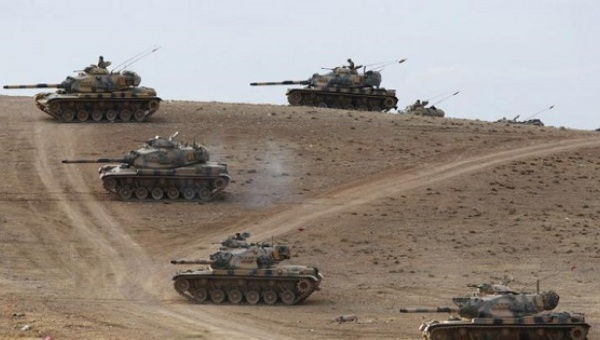Trump's Decision to Withdraw from Syria Shrouded in Intricacy

President Trump made a surprise announcement last month that Daesh terror group had been defeated in Syria and that US troops in the country would be coming home.
That decision caught Washington off-guard and sparked considerable controversy. But in the ensuing weeks, both Trump and administration officials have offered conflicting — and often confusing — statements about the timing of the withdrawal and what the US strategy in Syria entails.
Separately, the prospect of a pullout has alarmed the Syrian Kurdish forces allied with the United States. Turkey considers them terrorists and has vowed to drive them out of northeastern Syria. Kurdish officials have told reporters that they are seeking a deal with President Bashar al-Assad’s government just in case.
To get an in-depth analysis of Trump’s decisions, Iran Daily conducted an exclusive interview with lawmaker Mohammad Javad Jamali, a member of Parliament National Security and Foreign Policy Committee that follows.
IRAN DAILY: What do you make out of the abrupt decision of US president to pull troops out of Syria?
MOHAMMAD JAVAD JAMALI: The decision of US president to withdraw troops from Syria, made for whatever reason, is a victory for Resistance (forces aligned with Iran in the region) and the Islamic Republic. But to say that the US is not going to be involved in regional issues because of this decision is not acceptable.
We can see some reasons for this decision. The US troops may pull out of Syria and then support terrorists, morally and logistically, to make trouble in the region, paving the way for stronger return of the US troops later.
Moreover, this is a kind of ransom. The US wants countries like Saudi Arabia and UAE to pay more money if they want White House to keep its troops in the region. At the end of the day, Trump is a businessman and his policies are more determined by that mentality.
It is also possible that the US troops pull out of Syria, with Washington then reinforcing terrorists in Syria to portray the image that Iran, Russia and the legal government of Syria are not capable of controlling and settling things in Syria.
Another issue is that the US wants to have a proxy presence in Syria. Countries like Turkey, Saudi Arabia and even France will replace US troops in Syria. The French are particularly interested in playing this role as they have historically been present in Syria and like to still have a foothold there.
Perhaps, the US wants to exert more pressure on its European allies to invest more in the region in line with the US policies.
These are all the reasons that can be outlined for the US decision to withdraw troops from Syria. We should be vigilant for any of these eventualities.
After Trump’s decision, we are seeing new moves in the arrangement of Turkish military forces and Syrian Kurds’ forces in northern Syria along the common border. What’s your thoughts on the tension between Syrian Kurds and Turkey?
The US took advantage of the Syrian Kurds during the war on Syria. The US first designated some parts of Syria to be administered by Kurds, making them believe that the US is after granting autonomy and independence to them. But it was clear right from the beginning that the US was not ready to enter a big political challenge and tension with Turkey over Kurds.
After all, there are more than 10 million Kurds living in Turkey and the country cannot tolerate a Kurdish state along its border. The Turkish officials believe that lands under control of Kurds should be taken away from them. They reason that this clearance will pave the way for the return of Syrian refugees to regions previously held by Kurds, preventing a change in Syria’s political demographical contour.
What’s your take on the ongoing negotiations between the Syrian government and Kurds?
Kurds have come to conclusion that they should not be manipulated by the US anymore and therefore have held talks with Syrian government more seriously. Iran also welcomes this move. The talks have created a favorable situation for Turkey. Ankara hopes that it does not have to take military action to get what it wants.
But the Turkish officials have said that they are seriously considering a military offensive in northern Syria. What is Iran’s position in this regard?
The Syrian people are sick of war and bloodshed and the remaining issues should be solved through negotiations. The Islamic Republic’s support in Iraq and Syria was to help them maintain their territorial integrity and therefore we will not accept any change in Syria and Iraq’s geopolitical maps.
Source: Iran Daily

